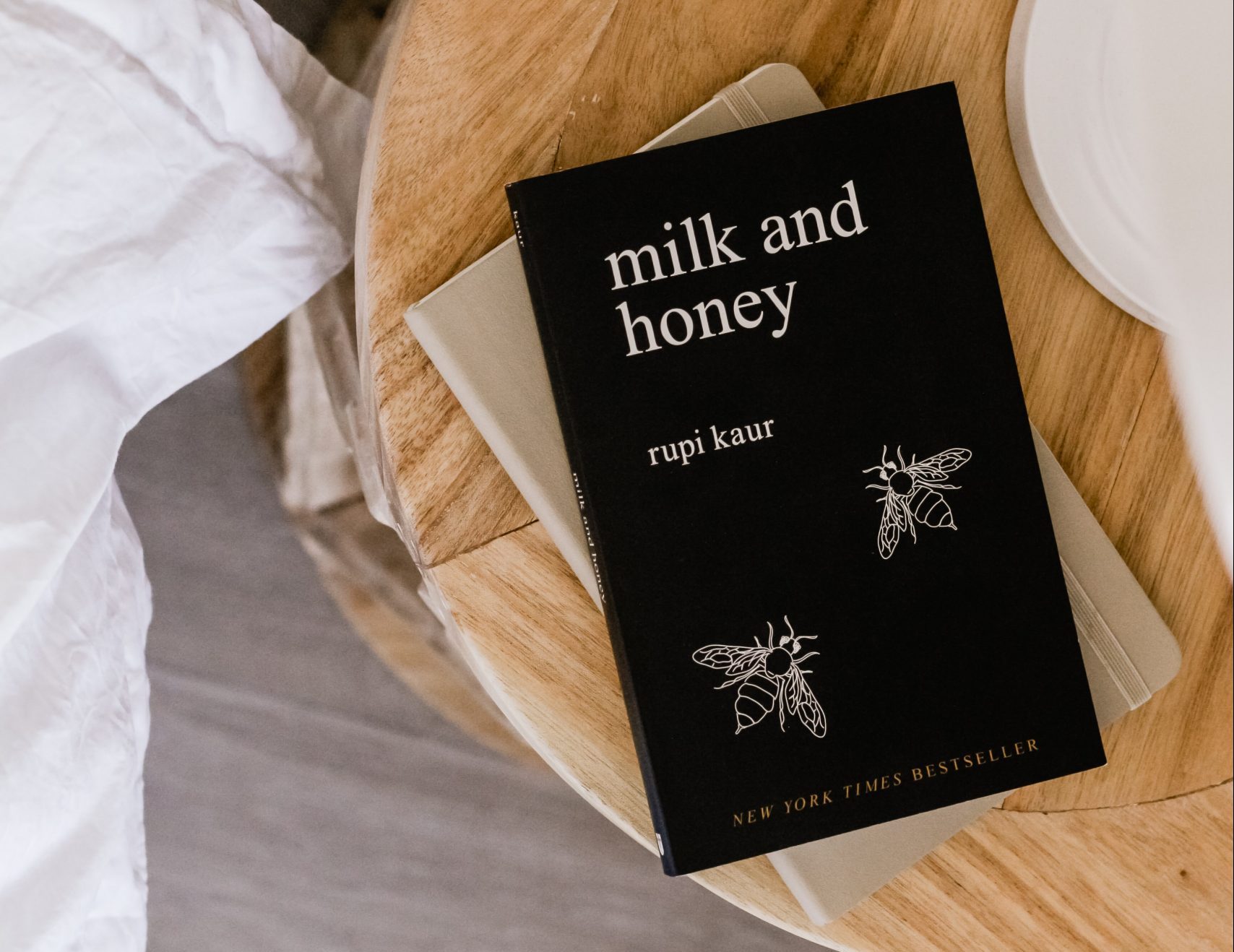
May 28, 2020, by UoN School of English
Catharsis, Comfort and the Contemporary Poetry of Rupi Kaur
Reception of Rupi Kaur’s pared-down poetry divides her readership into those who celebrate her popularisation of poetry (Kaur sold more copies of her debut collection in 2016 than the other top ten poets combined) and those who decry her work as somehow lazy in its brevity, and lacking the vocabulary and sophistication of traditional poetry. I count myself firmly in the first camp, having discovered Kaur after the publication of her first book of poems, Milk and Honey, and found myself instantly enamoured with her work. In fact, it is precisely Kaur’s simplicity of form, her conscious rejection of the strictures of punctuation and capitalisation, and her willingness to allow her poems an abundance of blank space on the page which give her poetry its impact.
Just like the Imagist Poets of the early 20th century, Kaur distils her poetry into its finest form, using only as many words as she needs to express her meaning. Many of her poems are accompanied by refined line drawings, many of which help to elucidate the occasionally laconic texts, and which, for me, elevate the collection as a whole in the way that only the coupling of words and art can.
Kaur takes as her subject matter the importance and difficulties of self-love, the celebration of the female body, heritage, and healing. Choosing to write many of her poems in the second person allows for a rare intimacy between poet and reader; if nothing else, one comes away from a reading of her poetry with a sense of the quiet power of the mind and body, and the multitudes we contain in ourselves and our histories. If you are in need of catharsis, comfort, or just a way into the world of contemporary poetry, Kaur is the poet for you.
Sasha Gardner is a third year English student at the University of Nottingham.
Image credit: Sincerely Media
No comments yet, fill out a comment to be the first

Leave a Reply